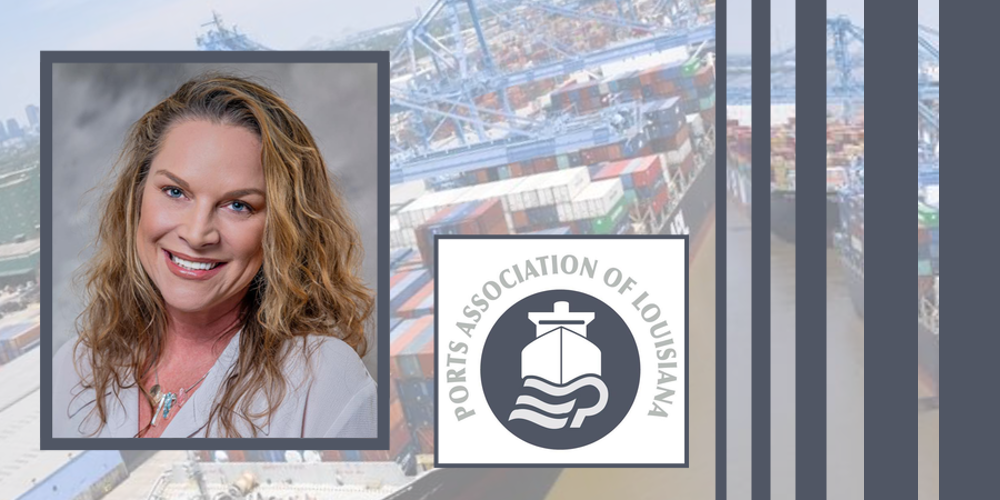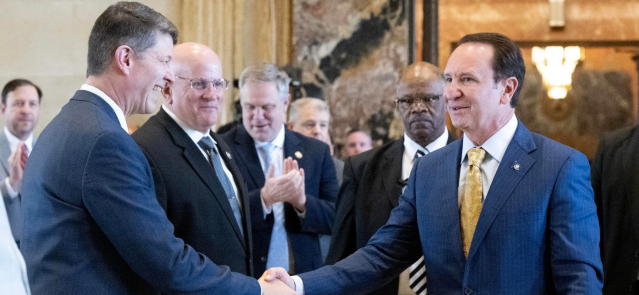Stay ahead of the curve as a political insider with deep policy analysis, daily briefings and policy-shaping tools.
Request a DemoMarusak: Federal regs, underfunding issues hinder Louisiana ports

Louisiana’s port system is the gateway into, and out of, the world. With more than 12,500 miles of waterways, our biggest economic driver – one in five jobs in the state – is at our backdoor.
But the underfunding of projects necessary to feed the world, provide energy and keep the supply chain moving has proved detrimental to all concerned, whether inside or outside of our borders. Unfortunately, some in Washington, D.C. are imposing onerous regulations on Louisiana’s port system.
The stark reality is that the federal funding mechanisms are still designed for a pace of development that no longer matches the rapid timelines dictated by today’s market dynamics. The process of securing and disbursing federal funds is plagued by bureaucratic delays that turn potential projects into relics before they even break ground. This is further compounded by protracted permitting processes, particularly those involving the U.S. Army Corps of Engineers, which can delay projects for years.
With the pivotal role our ports play in economic stimulation, particularly within rural, underdeveloped regions, it is time for a new approach to funding that recognizes the unique challenges and opportunities of ports and crafts solutions that foster quick, effective economic growth and resilience.
The Biden Administration’s LNG export-permitting pause has halted the progress of an estimated $65 billion in investment. The projects on hold in Calcasieu and Cameron parishes alone would generate more than 25,000 jobs and more than $2 billion in GDP. Once completed, these operations would result in annual impacts of almost 4,000 permanent jobs and more than $1.3 billion annually in GDP.
FEMA continues to drag its feet regarding Hurricane Ida Public Assistance Grant underfunding, which is causing a commercial revenue loss of $13 million per year for our fishing industry and $1.3 million tax revenue loss per year for local and state coffers.
It is also important to continue funding the latest technology and cybersecurity enhancements to ensure commerce along America’s most important waterway is uninterrupted.
The proposed 25 percent tariff on the importation of Chinese-built Ship-To-Shore cranes is also detrimental. Despite recent and worthy efforts, there are currently no manufacturers of STS cranes in the United States, nor have there been for four decades.
The cost of a 25 percent tariff on the STS cranes will stunt the ability of U.S. ports to keep cargo flowing and adapt to the growing demand on our trade gateways. This additional cost will reduce the competitiveness of American ports. As U.S. ports become less competitive, American farmers, agricultural companies, manufacturers, retailers, and exporters will bear the burden of lost access for their products.
We urge policymakers to consider these points and to revise funding mechanisms and permitting processes to create a fertile ground for transformative projects that can bring sustained prosperity to America’s gateway.
Jennifer Marusak is executive director of the Ports Association of Louisiana.
This column was edited for length.
Know the most important news affecting Louisiana
Get our free weekly newsletter that covers government, policy and politics that impact your everyday life—in 5 minutes or less.
Long-awaited DOTD reorganization report completed
LaPolitics/State Affairs has obtained the Boston Consulting Group report about the Louisiana Department of Transportation and Development. Gov. Jeff Landry tapped the Louisiana Coalition to Fix Our Roads, a private industry group, to initiate a planned reorganization effort for the department. The coalition selected BCG, which was expected to deliver the report to legislative leaders …
Our History: Louisiana’s first oil well
The first commercial oil well in Louisiana history was drilled in Evangeline (near Jennings) in September of 1901. Jules Clement, a French-speaking farmer, had noticed bubbles rising from a spot in one of his rice fields when it flooded. Knowing about the recent discovery of the Spindletop oil field in nearby Beaumont, Texas, he decided …
In Case You Missed it in LaPolitics Weekly
Here’s what you may have missed in the latest issue of LaPolitics Weekly, published last week… — TAX PLAN UNVEILED: Gov. Jeff Landry will have to navigate a political minefield to win approval of his proposed overhaul of Louisiana’s taxation system… — INSURANCE ISSUES: While some lawmakers and Commissioner Tim Temple continue to call for …
Headlines and Bylines
— The Advocate: Are flood protection projects like ones in Louisiana worth the cost? An official report says yes — The Advocate: Louisiana is Trump country, no longer a swing state. Once Democratic LaSalle Parish shows why — WBRZ: Baton Rouge mayor candidates address key issues in effort to win over undecided voters at Press …



